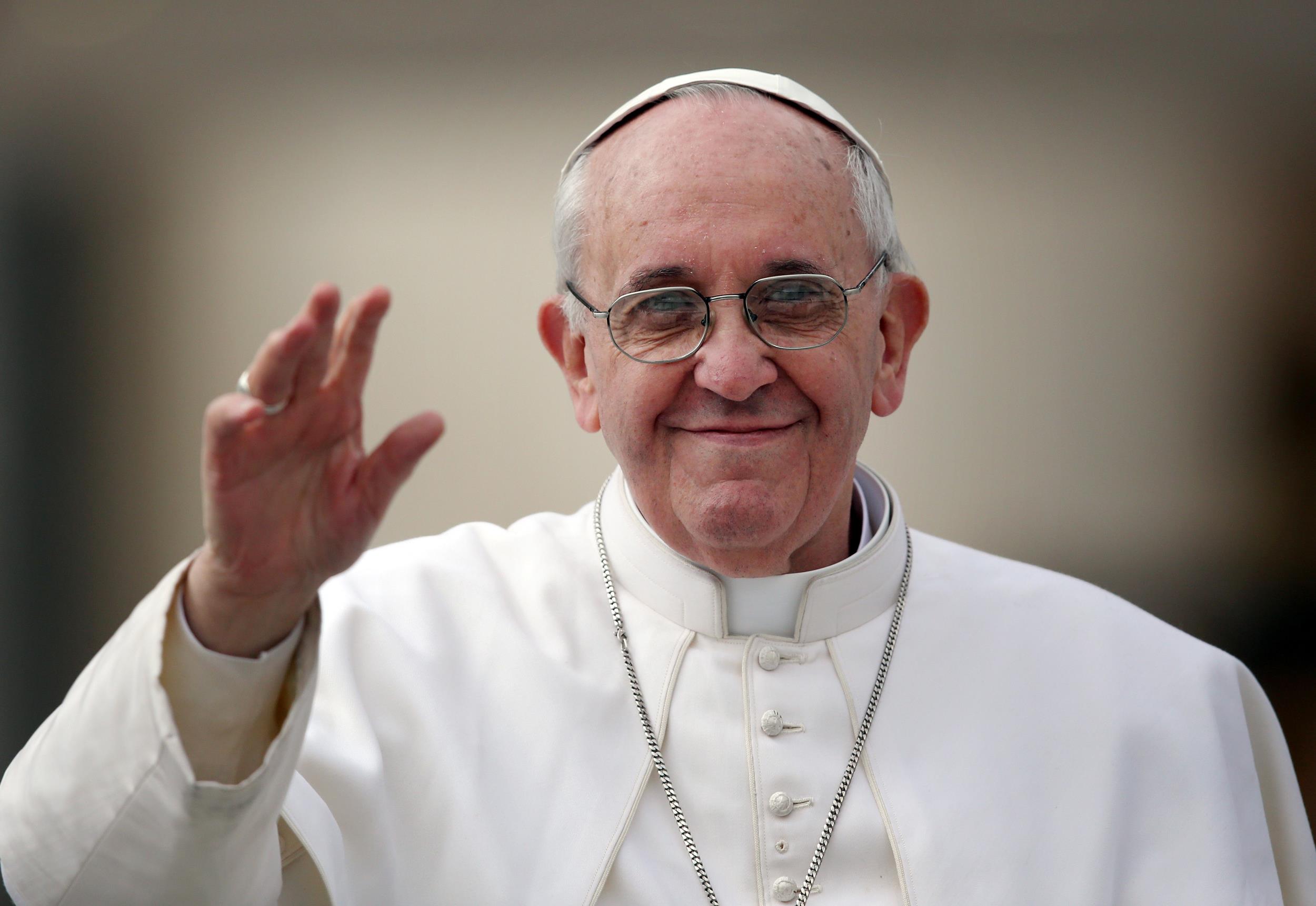
Pope Francis opens a “Holy Door” at St Peter’s basilica to mark the start of the Jubilee Year of Mercy, on December 8, 2015 in Vatican. In Catholic tradition, the opening of “Holy Doors” in Rome symbolises an invitation from the Church to believers to enter into a renewed relationship with God. AFP PHOTO / VINCENZO PINTO / AFP / VINCENZO PINTO
2016 Jubilee / 2016 Holy Year
“Mercy will always be greater than any sin, and no one can place limits on the love of God who is ever ready to forgive. I will have the joy of opening the Holy Door on the Solemnity of the Immaculate Conception. On that day, the Holy Door will become a Door of Mercy through which anyone who enters will experience the love of God who consoles, pardons, and instils hope.”
(Pope Francis I, Bull of Indiction of the Extraordinary Jubilee of Mercy)
The 2016 Jubilee will begin on December 8th 2015– the Immaculate Conception– — and will end on November 20th, 2016 – Solemnity of Our Lord Jesus Christ, King of the Universe. It will also coincide with the 50th anniversary of the closing of the Second Vatican Council in 1965.
Pope Francis I introduced the Holy Jubilee Year with the following words: “Dear Brothers and Sisters, I have often thought how the Church can make more evident its mission to be a witness of mercy. It’s a journey that begins with a spiritual conversion. For this purpose I have decided to proclaim an extraordinary Jubilee that will have as its center the mercy of God. It will be a Holy Year of Mercy. We want to live it in the light of the word of the Lord: ‘Be merciful as your Father.’”
What is a Jubilee Year?
The first Holy Year, or Jubilee, was called for by Pope Boniface VIII in 1300. Boniface invited the faithful to journey to Rome on pilgrimage throughout the course of one year. The Jubilee consisted of special celebrations, calls for conversion and repentance, and opportunities to receive God’s grace through the sacraments, especially confession. Boniface envisioned a Holy Year once every century.
The Holy Year traditionally offers the Plenary Indulgence – a year of forgiveness of sins and also the punishment merited by one’s sins. It is also a year for reconciliation between enemies, conversion and receiving the Sacrament of Reconciliation.
From 1475 onwards – in order to allow each generation to experience at least one Holy Year – the ordinary Jubilee began to be celebrated every 25 years. However, an extraordinary Jubilee Year (in between the 25 years) may be announced on the occasion of an event of particular importance. However, as is the case with Pope Francis’ 2016 Holy Year of Mercy, an extraordinary Jubilee can be called for a special occasion or for an event that has a particular importance.
Until present, there have been 26 ordinary Holy Year celebrations, the last of which was the Jubilee of 2000 presided over by Pope John Paul II.
The Holy Doors
The Jubilee Year is marked by the opening of the Holy Doors of each of the papal basilicas: St. Peter’s, St. Paul’s outside the Walls, St. Mary Major, and St. John Lateran. These special doors can be opened only by the Holy Father at the beginning of each Holy Year. In the liturgical tradition, the door symbolizes the threshold across which the faithful pass, having decided to leave the old world behind to gain new life. It symbolizes access to the Father, through Christ, to receive forgiveness for sins through penance, to hear his word, to participate in Eucharist, and to receive graces.
What happens during 2016 Jubilee Holy Year?
On Friday, March 14, 2015, Pope Francis marked the second anniversary of his election by making two important announcements: The first was that he might not be pope for long; the second was his call for a special Jubilee Year focusing on an important theme of his: mercy.
Was it coincidental that he made both announcements on the same day? We believe not. This Jubilee year of Mercy will allow pilgrims to Rome both the opportunity to participate in a once-in-a-lifetime Jubilee as well as to experience the graces that come with pilgrimage to Rome during a Holy Year. It will also offer the possibility of seeing Pope Francis while he is still pope.
As all Jubilee years, this one will consist of a general pardon, an indulgence open to all, and the possibility to renew one’s relationship with God and neighbor. The Holy Year will be an opportunity to deepen one’s faith and to live with a renewed commitment to Christian witness.





